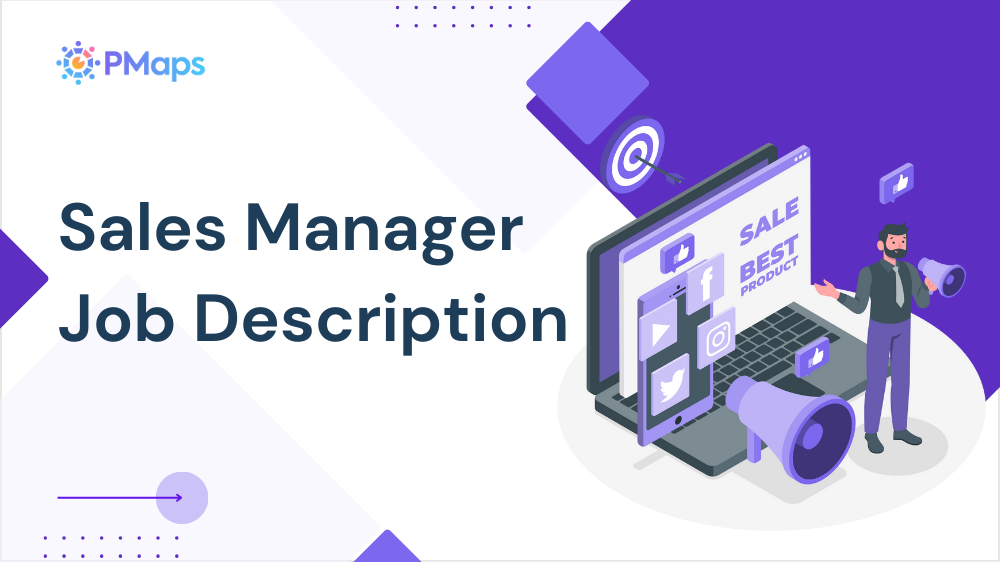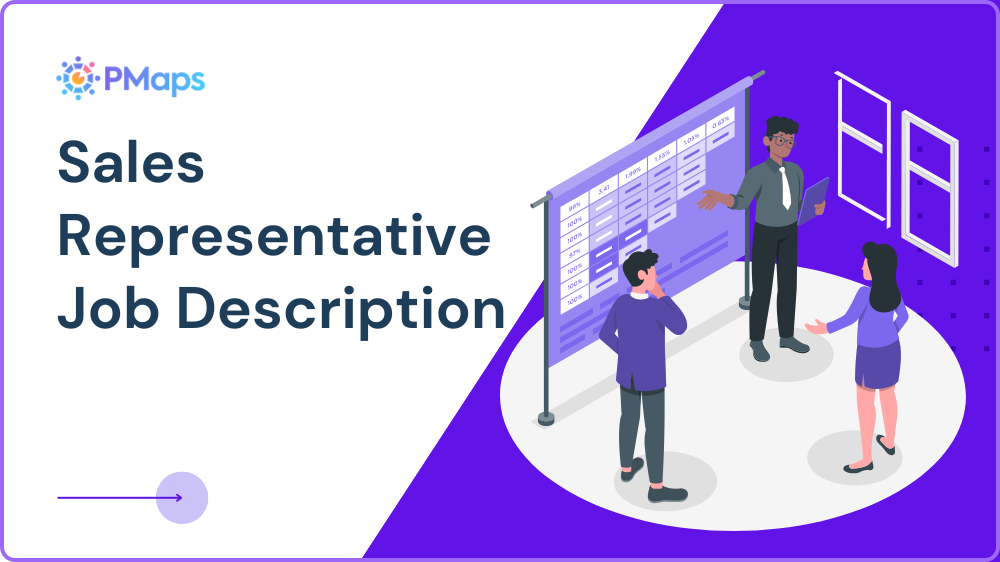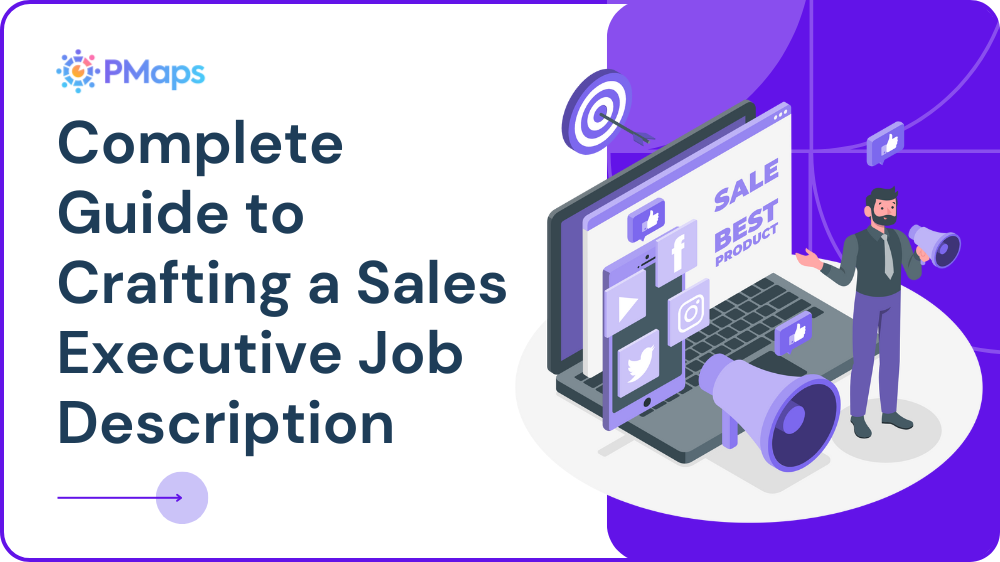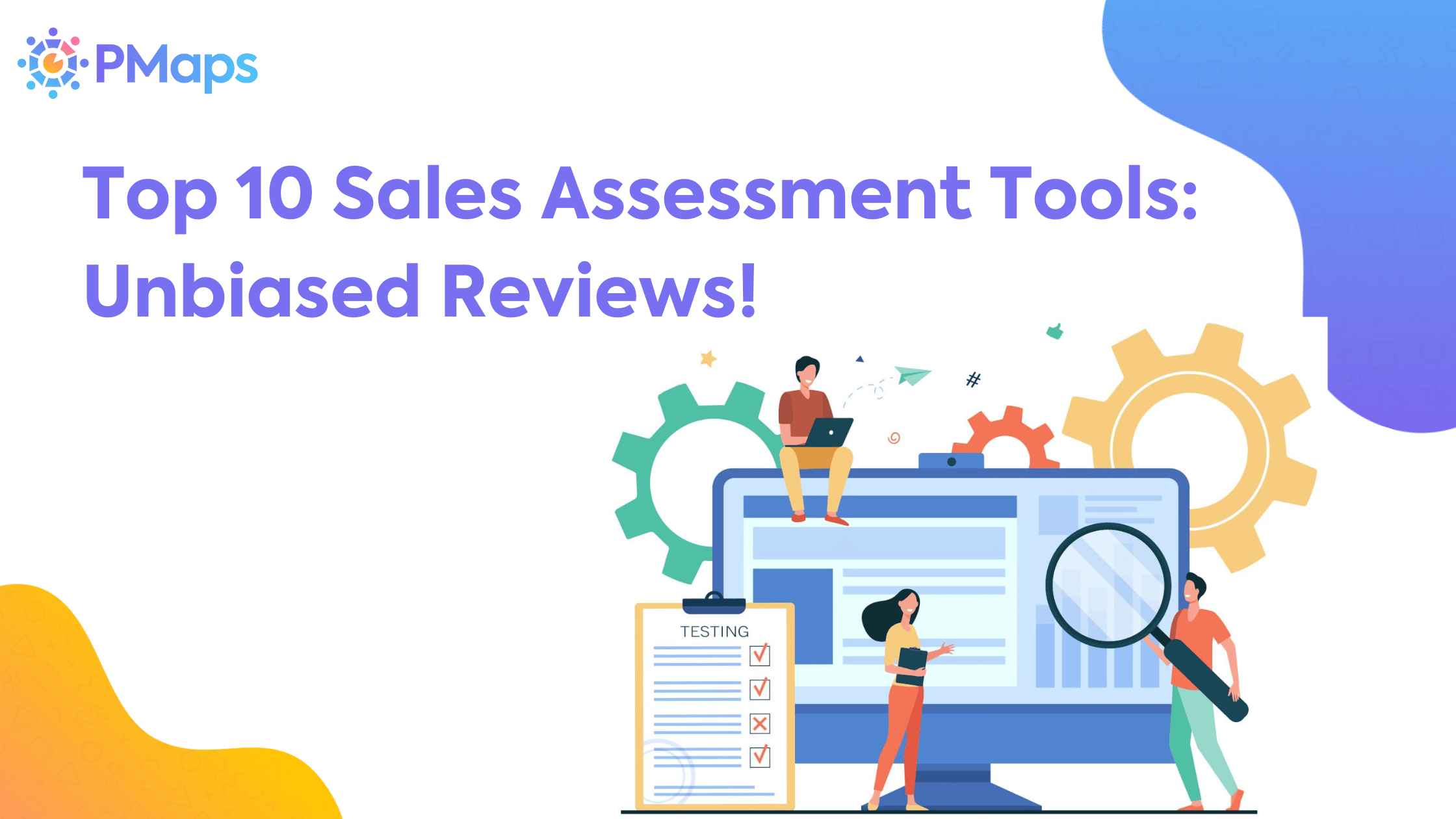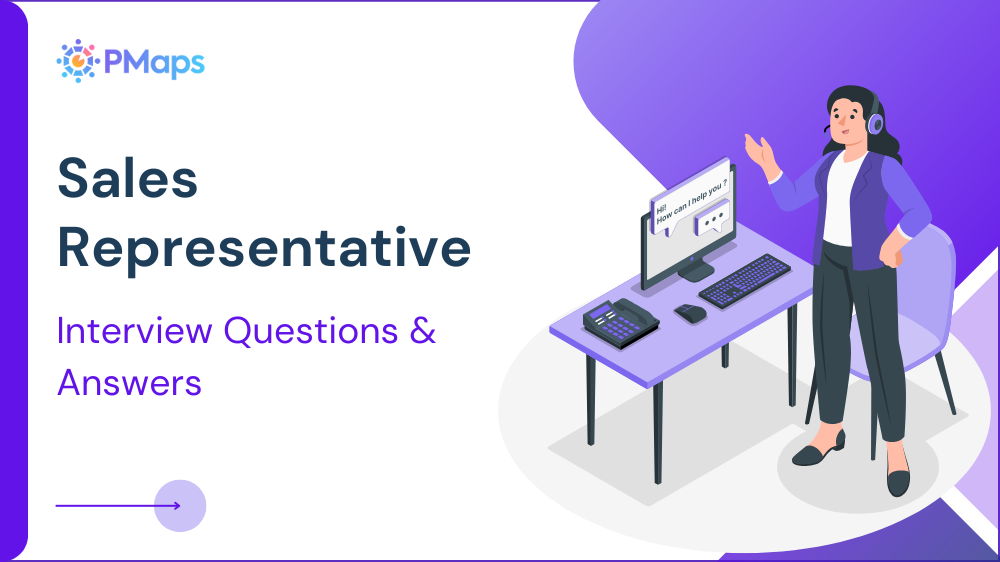
Sales representative interview questions are a critical filter in building a revenue-focused team that closes deals and earns trust. According to HubSpot’s 2023 State of Sales Report, only 3% of buyers trust salespeople—making it essential to hire representatives who build credibility, not pressure.
Make smarter decisions—use the Sales Representative Assessment for final validation.

Modern sales reps are more than product pushers. They’re listeners, problem-solvers, and relationship architects. Whether you're hiring for inbound or outbound roles, virtual or field sales, the challenge lies in identifying those who sell with strategy, not scripts.
This guide equips you with structured sales representative interview questions and answers to help you evaluate candidates across:
- General sales aptitude and communication
- Behavioral insights under real selling pressure
- Situational agility in client-facing scenarios
- Technical familiarity with tools and KPIs
Quick check—review the Sales Representative Job Description before you proceed.
General Interview Questions for Sales Representatives
In any sales representative interview, general questions establish the foundation for deeper assessment. These are designed to uncover a candidate’s mindset, communication style, motivation, and ability to align with your sales methodology. They are particularly useful when hiring across varied sales models—inside sales representatives, outside sales reps, or sales development representatives—as they provide early indicators of readiness.
Sample Candidate Answer: I enjoy sales because it’s about connecting with people and solving problems. I always research a prospect before reaching out so I can speak to what matters to them. I start with questions to understand their goals and adjust my tone based on how they communicate.
When asked thoughtfully, these five questions can reveal whether a candidate understands the fundamentals of consultative selling, and whether they will integrate well into your team’s rhythm and expectations.
1. How do you approach building rapport with a new prospect?
What it Assesses: Relationship-building mindset, emotional intelligence, and first-impression strategy.
What to Look For:
Successful salespeople recognize that connection precedes conversion. Look for responses that mention researching the prospect beforehand, asking open-ended questions, and adjusting communication style to the customer’s tone or personality.
What to Avoid:
Over-reliance on scripts or automated intros with no personalization. Candidates who skip rapport and push offers too quickly often struggle with long-cycle selling.
2. What does your ideal sales process look like from first contact to close?
What it Assesses: Process orientation, strategic planning, and adaptability to different buyer journeys.
What to Look For:
Listen for candidates who walk through key stages: prospecting, qualifying, needs assessment, pitching, objection handling, and closing. Ideal responses include CRM tracking, customization, and alignment with the customer’s timeline.
What to Avoid:
Vague steps like “call them, tell them about the product, and close” signal a transactional mindset. This can be risky in consultative or complex sales cycles.
3. How do you handle rejection or slow-moving leads?
What it Assesses: Resilience, follow-up strategy, and emotional regulation.
What to Look For:
Effective reps understand that rejection is part of the process. They use structured follow-up systems, refine their approach, and don’t let setbacks affect their performance.
What to Avoid:
Overly emotional or passive responses such as “I just move on” or “It’s frustrating but normal.” These suggest a lack of grit or pipeline discipline.
4. What motivates you to exceed sales targets?
What it Assesses: Intrinsic drivers, ambition, and long-term alignment with performance goals.
What to Look For:
Top performers often cite goals beyond commission—like helping clients succeed, outperforming peers, or personal career growth. Bonus points if motivation aligns with your company’s values or culture.
What to Avoid:
Generic answers like “I just like winning” or “money is everything” without context. You’re looking for focused, goal-oriented individuals—not short-term chasers.
5. How do you stay organized during busy sales cycles?
What it Assesses: Time management, CRM usage, and follow-up reliability.
What to Look For:
Candidates should mention tools (e.g., Salesforce, HubSpot, Trello), tagging systems, reminders, and how they prioritize hot vs. cold leads. Sales is a numbers game—but only if it’s tracked correctly.
What to Avoid:
Overconfidence in memory, lack of process, or “I just keep it in my head” approaches. These lead to missed follow-ups and pipeline leaks.
Behavioral Interview Questions
Behavioral interview questions help uncover how a sales candidate has acted in real selling situations—offering concrete evidence of competencies like persuasion, objection handling, resilience, and value-based selling. These are particularly valuable for identifying reps who don’t just know the theory but can execute under real-world pressure.
Sample Candidate Answer: A prospect once declined after my first demo. I asked for honest feedback and learned it was a timing issue. I stayed in touch, followed up when their budget opened up, and closed the deal later. Listening and timing made all the difference.
Using the STAR method (Situation, Task, Action, Result) encourages candidates to share detailed, structured experiences that reveal their mindset, tactics, and professional maturity. These responses are especially useful when layered with insights from a sales assessment or sales development representative test.
1. Tell me about a time when you turned around a prospect who initially said “no.”
Why Ask This:
Rejection is inevitable in sales. This question assesses the candidate’s ability to remain composed, reframe objections, and shift the conversation toward value.
What to Listen For:
Look for structured objection handling, patience, requalification efforts, and the ability to pivot without being pushy. The outcome isn’t as important as the logic and empathy shown in the process.
2. Describe a situation where you exceeded your sales target. What drove your performance?
Why Ask This:
Sales excellence isn’t accidental. This question reveals whether a candidate can dissect and replicate their success—and whether they have control over their own performance levers.
What to Listen For:
Target breakdowns, strategic prospecting, disciplined follow-up, and use of tools or data. Responses should reflect proactive planning, not just “luck” or “a good month.”
3. Share an example of how you handled a long or stalled sales cycle.
Why Ask This:
B2B or high-ticket sales often involve complex timelines. This question assesses patience, lead nurturing, and ability to re-engage prospects effectively.
What to Listen For:
Signals of consistent touchpoints, educational content sharing, new stakeholder mapping, or timely escalation strategies. Avoid candidates who simply “waited it out.”
4. Tell me about a time you lost a deal you worked hard on. What did you learn?
Why Ask This:
Setbacks happen. What matters is whether the candidate reflects, adapts, and applies the lessons learned. This question reveals accountability and coachability.
What to Listen For:
Ownership of gaps, understanding of what went wrong (e.g., timing, value mismatch), and a clear plan to avoid repeating the mistake. Avoid blame-shifting to “price” or “product” alone.
5. Give an example of how you collaborated with a marketing or product team to close a deal.
Why Ask This:
Modern sales is cross-functional. This question checks how well the candidate works across departments to align messaging, timing, and client insights.
What to Listen For:
Mentions of lead quality feedback, customized materials, co-hosted demos, or technical support coordination. This is key for roles in complex sales environments or where product expertise is essential.
Situational Interview Questions
Situational questions present hypothetical yet realistic scenarios to understand how candidates would navigate future challenges. Unlike behavioral questions, which focus on past actions, situational prompts test instinct, foresight, and real-time decision-making.
Sample Candidate Answer: When a lead ghosts me, I don’t take it personally. I try a few structured follow-ups—switching channels like LinkedIn or a value-driven email with something useful, like a case study. If I still hear nothing, I pause and reassess. On a broader scale, if conversions are down despite a full pipeline, I dig into lead quality.
In a sales representative interview, this is particularly useful for evaluating adaptability, critical thinking, and value-based judgment. These scenarios are also helpful when mapped against outcomes from a sales assessment or outside sales representative test, offering a practical layer of validation.
1. How would you respond if a prospect ghosted you after a promising demo?
Why Ask This:
Ghosting is common in modern sales cycles. This question assesses resilience, re-engagement strategy, and emotional control.
What to Listen For:
Look for structured follow-up, diversified outreach (email, LinkedIn, call), and value-driven messaging. Candidates should demonstrate persistence without being pushy. Avoid those who say, “I’d move on.”
2. Imagine your pipeline is full, but conversion rates are low. What would you do?
Why Ask This:
Pipeline health is about quality, not just volume. This question reveals how the candidate analyzes data, prioritizes leads, and course-corrects under performance pressure.
What to Listen For:
Mentions of lead scoring, revisiting qualification frameworks (like BANT or CHAMP), or collaborating with marketing for lead refinement. Avoid generic “work harder” answers.
3. A customer challenges your pricing and threatens to go with a cheaper competitor. How would you handle it?
Why Ask This:
This scenario tests the candidate’s ability to defend value, not just discount. It reveals negotiation skill, product confidence, and customer engagement tactics.
What to Listen For:
Strong responses include highlighting ROI, differentiators, bundling alternatives, or stakeholder engagement. Avoid immediate discounting or surrender.
4. You’re behind on your monthly target with only a week left. What’s your plan?
Why Ask This:
Sales roles often involve high-pressure timelines. This question assesses urgency management, goal-setting behavior, and the ability to refocus efforts quickly.
What to Listen For:
Look for time-blocking, prioritization of hot leads, internal alignment (e.g., asking for help with demos), and psychological resilience. Avoid panic-driven or aimless “try everything” responses.
Technical or Role-Specific Interview Questions
Beyond soft skills and selling instincts, modern sales representatives must demonstrate technical fluency and operational discipline. Whether you're hiring for an inside sales representative, outside sales rep, or a sales development representative, this section helps evaluate how candidates use tools, analyze performance, and manage their workflow.
Sample Candidate Answer: I’ve used Salesforce and HubSpot regularly to track where deals are, set automated reminders, and keep my notes clean for follow-ups. I log every call and update lead stages consistently—it helps me stay sharp when juggling 30+ deals. The main metrics I track are conversion rate, pipeline velocity, and where deals typically slow down. I also tailor my pitch depending on who I’m speaking to.
These questions are also useful when layered with data from a sales development representative test or CRM simulation exercises in your sales assessment process.
1. What CRM tools have you used, and how do you leverage them in your daily workflow?
Why Ask This:
A candidate’s CRM fluency reflects their ability to track progress, manage follow-ups, and stay organized under high-volume sales cycles.
What to Listen For:
Familiarity with tools like Salesforce, HubSpot, Zoho, or Pipedrive. Listen for how they use tagging, lead stages, task reminders, and activity logging. Avoid vague answers like “I just update notes.”
2. How do you prioritize leads when working from a long list of prospects?
Why Ask This:
This question checks lead qualification logic and resource allocation—critical for both inbound and outbound roles.
What to Listen For:
Look for reference to frameworks (e.g., BANT, MEDDIC), buying signals, account scoring, or segmentation. Avoid answers that rely solely on alphabetical order or gut feeling.
3. What metrics do you track regularly to monitor your sales performance?
Why Ask This:
Self-awareness of performance indicators is essential. This question reveals whether the candidate manages their own success using objective data.
What to Listen For:
CSOs and VPs want candidates who understand metrics like conversion rate, pipeline velocity, AOV, deal size, or average sales cycle. Avoid those who only mention “monthly quota.”
4. How do you tailor your pitch to different buyer personas or industries?
Why Ask This:
This question evaluates adaptability, research ability, and audience sensitivity—key traits in consultative and multi-industry sales roles.
What to Listen For:
Examples of how candidates modify tone, messaging, or value props for different verticals or roles (e.g., CFO vs. Head of Ops). Avoid one-size-fits-all pitch styles.
5. How do you manage your territory or assigned accounts to ensure consistent coverage?
Why Ask This:
Territory and account planning reflects a candidate’s long-term focus, especially in field sales or account-based selling models.
What to Listen For:
Structured planning, use of sales mapping tools, regular touchpoints, and reporting. Candidates should speak about segmenting their approach—not just “I call them every now and then.”
Pro Tips for Interviewing as a Sales Representative
Hiring a high-performing sales representative is not just about evaluating personality or industry familiarity—it’s about identifying the ability to sell under pressure, adapt to different buyers, and stay consistent in follow-through. As a sales interviewer, your goal is to move beyond charisma and assess performance potential with precision.
Conversion rates falling short? Understand how to hire a Sales Representative who communicates value and maintains consistent action.
Here are some insights that will help you differentiate polished candidates from truly performance-ready reps. When combined with structured questions and tools like a sales assessment or inside sales representative simulation, you gain a 360° view of the candidate’s fit and future potential. Use these six pro tips to structure your interviews with more intent and depth:
1. Evaluate Reasoning Behind Wins and Losses
Judgment, sales acumen, and accountability. Encourage candidates to walk you through their sales cycles—what worked, what failed, and why. Their analysis reveals whether they understand buying behavior or just got lucky.
2. Apply the STAR or BEI Method to Selling Scenarios
Consistency, replicability, and process awareness. Sales isn’t about isolated success—it’s about repeatable systems. Ask candidates to break down real sales situations using STAR (Situation, Task, Action, Result) or BEI (Behavioral Event Interviewing). This ensures clarity and consistency across interviews.
3. Prioritize Commercial Thinking Over Confidence
Strategic thinking, not just showmanship. A confident speaker may win the room—but can they qualify a lead or map stakeholder needs? Listen for commercial awareness, pipeline control, and value communication—not just smooth delivery.
4. Map Answers to Sales Competencies
Objective alignment with role fit. Clarify which skills matter most: prospecting, negotiation, CRM management, consultative selling, etc. Score responses against these traits to make unbiased, role-relevant decisions.
5. Look for Ownership in Failure Stories
Resilience, honesty, and self-improvement. Strong candidates don’t deflect blame when deals fall through. They reflect on what they missed, what they learned, and how they adjusted. This self-awareness often predicts long-term improvement.
6. Observe How They Sell—Even When Answering Questions
Sales instinct and communication style. Sales reps are always selling—especially in interviews. Watch how they structure responses, handle pushback, and communicate value. Their ability to engage, not just answer, often mirrors their approach with customers.
Conclusion
A successful sales representative interview goes beyond charisma and persuasion. It’s about revealing whether a candidate can drive results, handle rejection, manage tools, and adapt across conversations and sales cycles.
By structuring your process across general, behavioral, situational, and technical dimensions, you gain a clear picture of both skill and mindset. The goal isn’t just to hire a good talker—it’s to hire a closer who listens, qualifies, and delivers value.
For added precision, consider integrating PMaps’ science-backed tools, including our sales assessment and sales development representative test. These assessments help you measure soft skills, selling style, and cognitive fit—before performance hits the floor. Need help customizing your interview or assessment process? Call us at 8591320212 or email assessment@pmaps.in.



